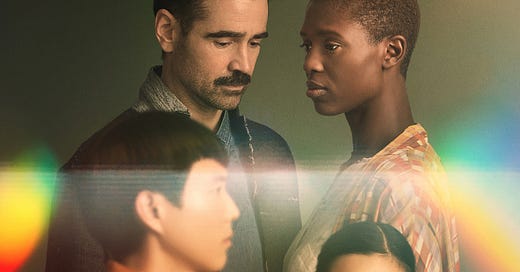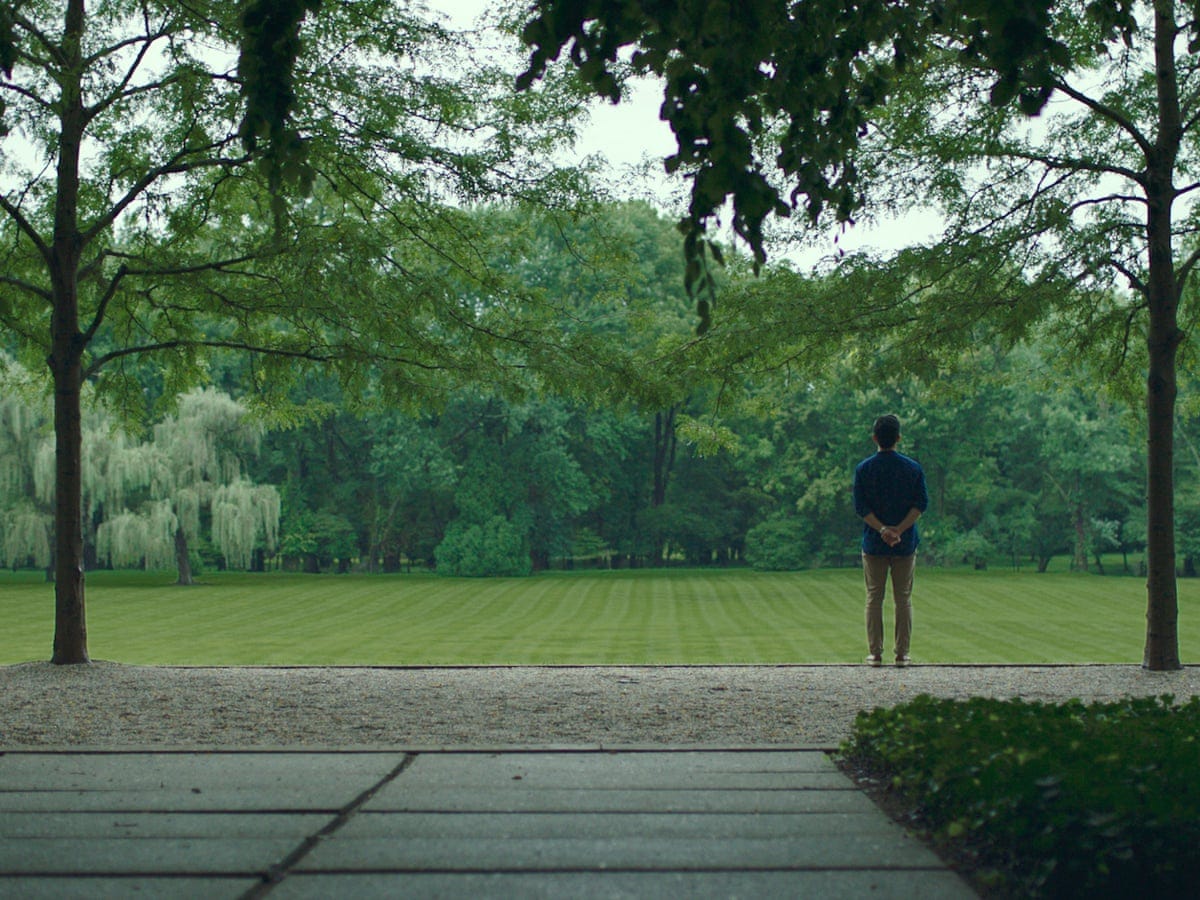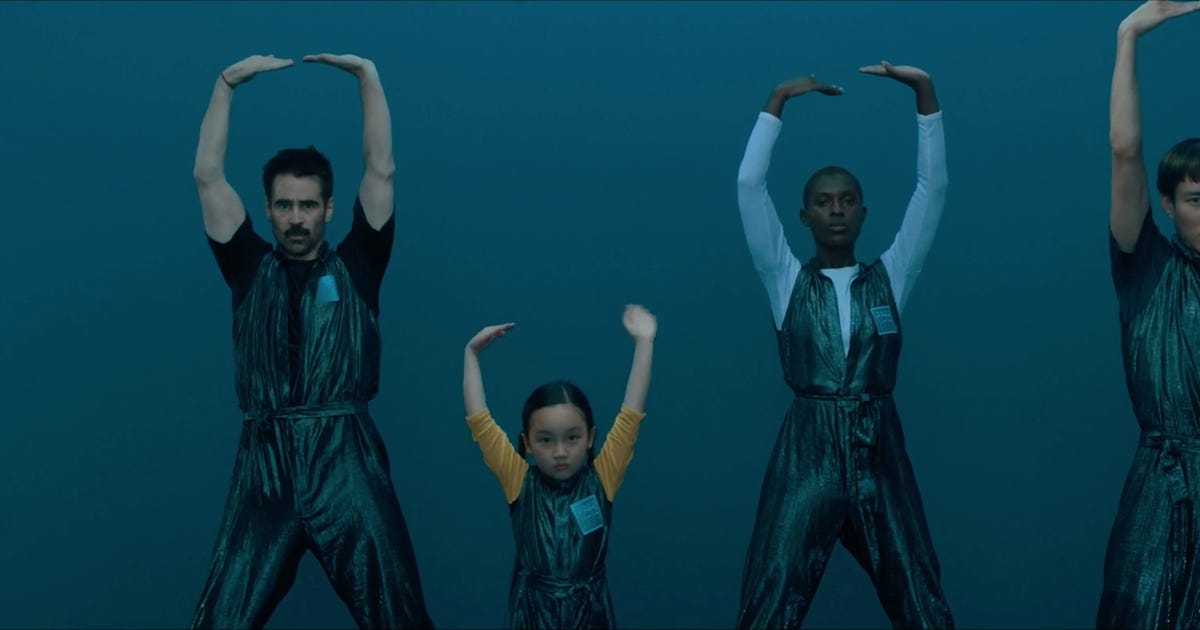Back on Lifting Fog (the blog, not the substack, keep up) I started all of my reviews with a haiku. None of these were exemplary models of the form and in most cases I was stretching to accommodate an arbitrary writing conceit, but it was an easy way to kick things off, especially in the early aughts.
It is now 2022, though, and I’m reviewing a movie by a Korean-American director, Kogonada1, about a Chinese-coded robot. Suffice it to say “here’s my haiku about it!” feels like the wrong way to approach the task. So let’s just skip that part!
Some necessary cinematic pre-reading
Before we get to ‘After Yang’ (I’m barely getting started with the temporal wordplay, buckle up), it feels important to discuss Kogonada’s previous film, 2017’s ‘Columbus’. Read my Haiku Review here! It is neither a biopic of explorer Christopher Columbus nor a biopic of director Chris Columbus but rather a super-gentle coming-of-age movie in which two very attractive people look at and talk about buildings for 90 minutes. I’m being glib but also not — the movie is literally about architecture.
And here’s the thing: what sounds boring as shit on paper is actually sort of…cinematically thrilling? Hear me out: buildings — maybe you know this, maybe you don’t — can’t move. They’re static. People, on the other hand, can move. So does film, in the sense it takes something static (photography) and, by focusing light through it at twenty four frames per second, renders movement. (My Film Studies degree was never for nothing, guys.)
It’s this obvious contradiction between stasis and movement that lends ‘Columbus’ something like profundity: using buildings, often filmed in wide, fixed shots, to tell a simple but powerful story about growth and change. You could probably turn the sound off, watch the movie as a silent screensaver, and it would be just as good. I mean this as a genuine compliment!
And now the movie in question
‘After Yang’ aims for the same reflective calm of its predecessor but falters, IMO2, by trying to bite off way more than it can chew in the story department.
“Okay pump the brakes, Henning, I don’t even know what in the hell ‘After Yang’ is,” some of you non-LA types are saying and okay, let’s pump the brakes. Some plot: Yang (Justin H. Min) is a domestic robot — “techno-sapien,” he’s called — living with a “mom” (Jodie Turner-Smith), “dad” (Colin Farrell), and “sister” (Malea Emma Tjandrawidjaja). When Yang goes on the fritz, as techno-sapiens are wont to do, Farrell’s efforts to repair him lead to some big questions about what it means to be human, how much any of our identities is a construct, and whether Mitski, not Bill and Ted, will be the official Music of the Future™️.
If ‘Yang’ has a central problem, it’s that it wants to do too many things without ever committing to one of them. Is this a Colin Farrell ASMR video? Is it a less horny (but more future-pants-heavy) ‘Her’? Is it — as some frankly reaching critics have suggested — a revolutionary meditation on Asian identity? ‘Yang’’s aims change with each new scene: sometimes it’s an overly plotty tone poem, other times an undercooked sci-fi movie, but rarely does it feel like it’s hitting whatever its intended target.
At the Q&A screening I attended3, Kogonada talked at length about the backstory he’d envisioned for ‘Yang’, everything from environmental cataclysm to war with China to the return of handlebar mustaches, and the ways that backstory subtly informs everything we see on-screen. Which is fine! I like subtlety. ‘Licorice Pizza’ is all the better for not including a scene where Alana Haim literally eats licorice-topped pizza.
But sometimes subtlety can be SO subtle as to be non-existent. Take the environmental question: ‘Yang’ suggests an aesthetic future that’s more Anthropologie than Apple, all wood-grain and moss and soft lighting. It’s visually rich, and an absolute balm for years of future-scapes seemingly designed exclusively by Jony4 Ive. But… it doesn’t mean anything, to these characters or their relationships. It seems to inform nothing outside of the greenery budget. Not that I want characters walking around saying “man, life is so different ever since climate change completely reoriented our relationship to nature and also clothing choices,” but… maybe a little of that? It wouldn’t matter to me, except that Kogonada says it does, and if we’re meant to derive any sort of specifics from this family’s story, then points like this need to be made more bluntly.
The stuff with China falls into the same category. Colin Farrell and Jodie Turner-Smith purchased Yang for the express purpose of connecting their adopted daughter to her Chinese roots. He’s a robot. Can robots have an ethnic identity? Interesting question! And yet just like with the environmental hand-waving (see above)… we’re given little to nothing about this world’s history, its political climate, its relationship to race — none of the things that would have made this a specific story as opposed to (see further above) an overly plotty tone poem.
Friend of the ‘Stack Bobby Kessler raised a pretty damning point to me, chewing on all this like so much future-protein in the streets of Los Feliz after ‘Yang’ (sorry, after ‘After Yang’) a few weeks ago. Would this movie have been that different if, scrapping the “techno-sapien” conceit entirely, it had just been about a family coming to grips with the death of their human son?
In the last two weeks I’ve read no shortage of breathless reviews proclaiming stuff like '“‘Yang’ isn’t just a great sci-fi movie, it’s the movie we need right now” or “Kogonada obliterates our preconceived notions of stillness” or
Listen. It’s a hell of a lot more interesting than ‘Uncharted’ or ‘Death on the Nile’ or ‘Marry Me’ (but not ‘Jackass Forever’ which I’ll go to my grave defending), so any criticisms I’ve leveled about this very pretty movie should be taken with a grain of salt. Stylistically, visually — ‘Yang’ is an absolutely worthwhile moviegoing experience. But experience isn’t a story, and I’m hoping Kogonada’s next movie appreciates the difference!
a pseudonym, honoring Yasujiro Ozo’s frequent writing collaborator Kogo Nada
Hendog, this is a movie review posted to your personal newsletter, the whole thing is IMO
tell me you live in LA without telling me you live in LA
I will never not be annoyed by the name “Jony.” Just be “Johnny”! “John”!








